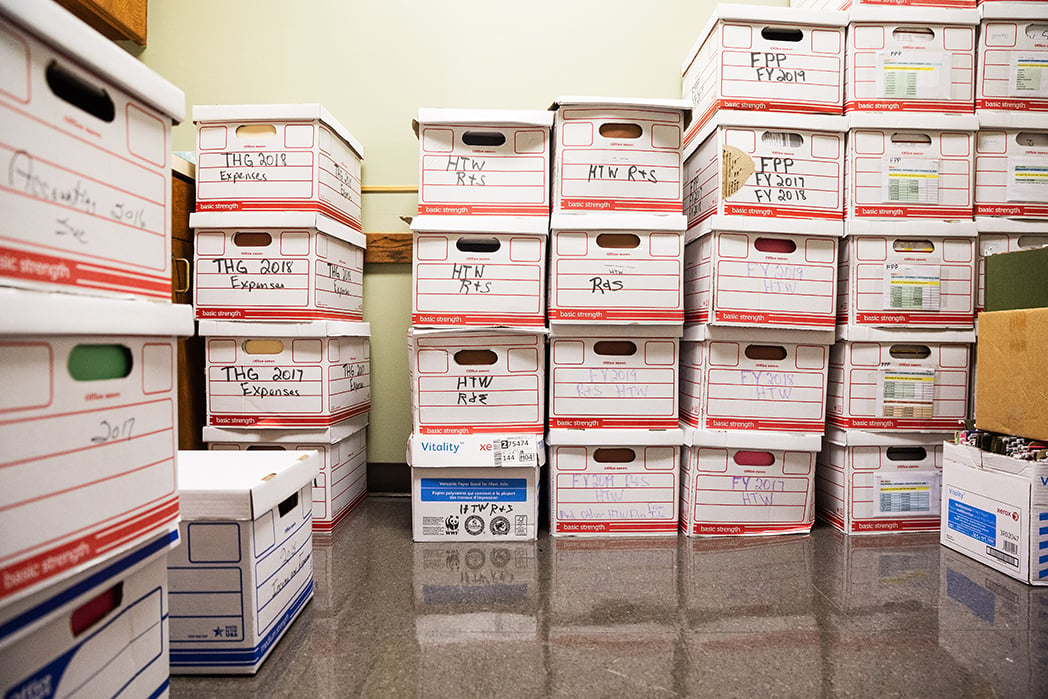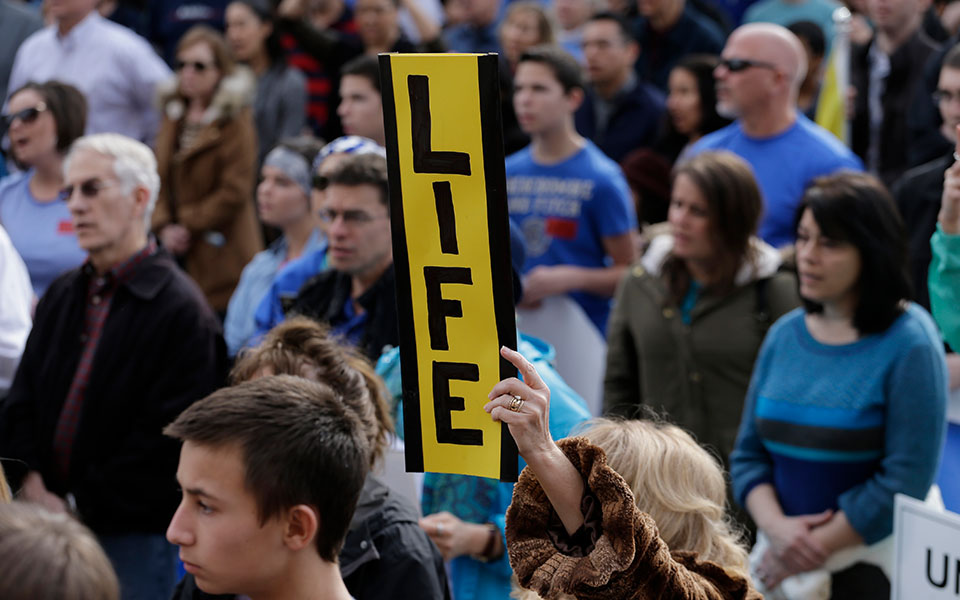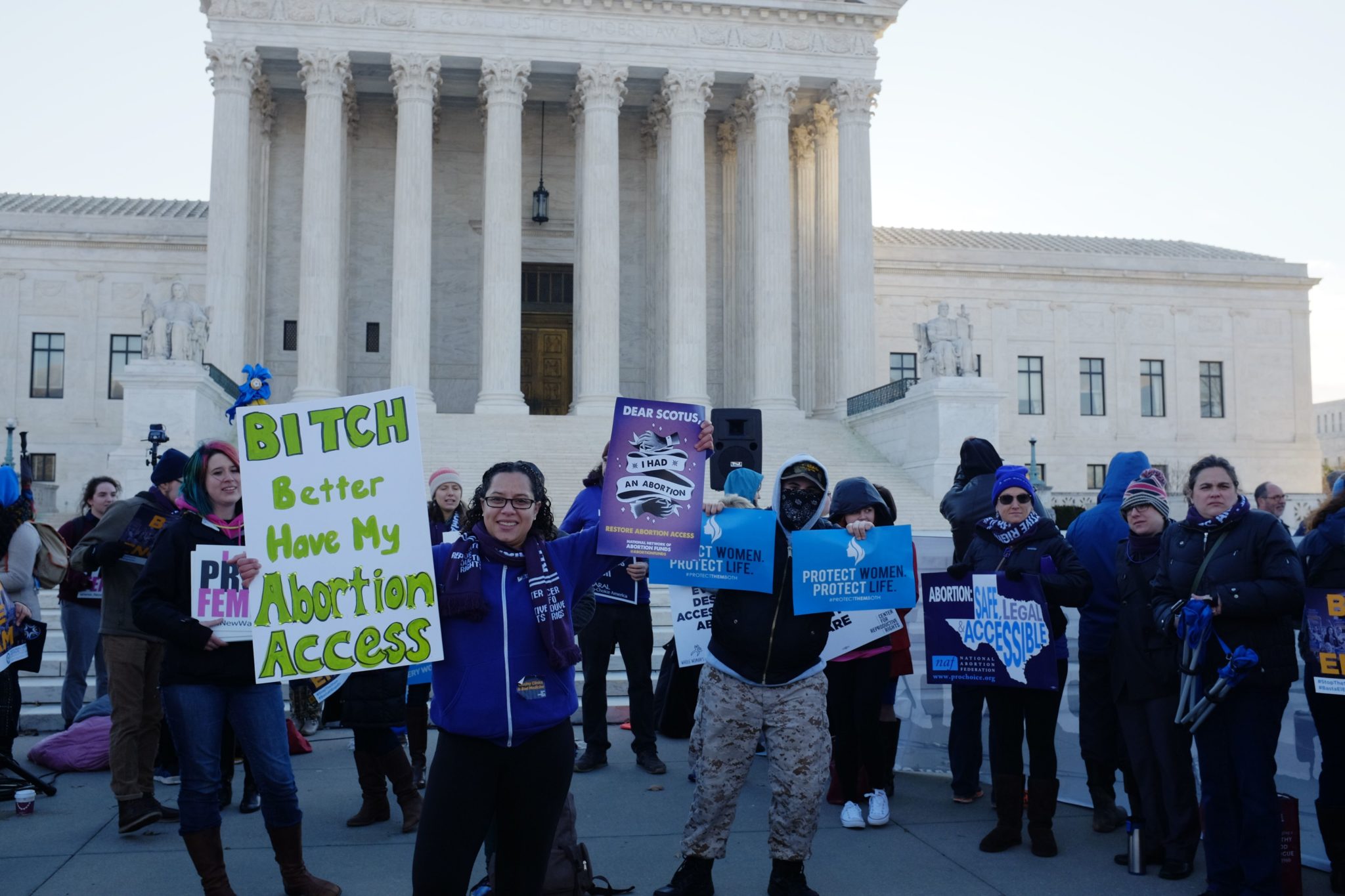
Lawsuit Filed Against New Texas Abortion Law
The Trump presidency and possible changes to the Supreme Court raise the stakes for the state’s next abortion fight.

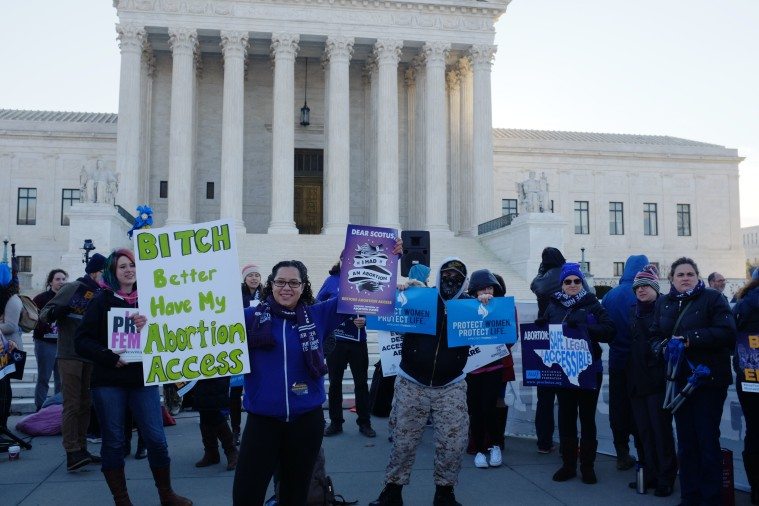
One year after the U.S. Supreme Court ruled against Texas’ sweeping 2013 anti-abortion law that closed the majority of clinics in the state, reproductive-rights attorneys are challenging a major provision of the new Senate Bill 8, signed into law by Governor Greg Abbott last month. If the lawsuit again makes its way to the high court, the plaintiffs hope the same kinds of arguments and the same justices will lead to another victory. But with Trump as president, there are no guarantees.
The lawsuit, filed in federal district court Thursday by the Center for Reproductive Rights and Planned Parenthood, challenges what anti-abortion lawmakers call the “dismemberment ban,” a nonmedical term for dilation and evacuation (D&E) abortions. The law, which takes effect September 1, bans the most common form of second-trimester abortions, dramatically limiting abortion access at 15 weeks. The plaintiffs say the measure is blatantly unconstitutional and flies in the face of last year’s Supreme Court ruling.
“Enforcement of the ban would threaten women’s bodily autonomy, health, and access to abortion in Texas,” reads the filing (full lawsuit below), “leaving physicians with no reasonable alternatives by which to continue providing this abortion care.”
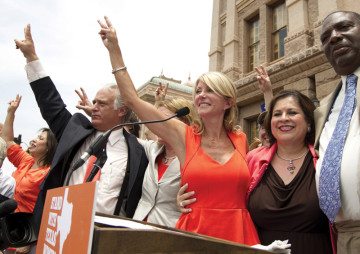
Abortion-rights advocates and their opponents agree that Texas’ new anti-abortion law is the most sweeping set of restrictions since House Bill 2 was passed four years ago. Both sides knew this lawsuit was coming and that it could carry major implications if it ends up at the U.S. Supreme Court. Abortion-rights supporters are counting on Justice Anthony Kennedy to stay on the court for the rest of Donald Trump’s presidency. If the rumors swirling about Kennedy’s possible retirement prove true, Trump would have the opportunity to appoint a new justice, giving conservatives the majority they need to overturn Roe v. Wade.
“[Last year] was a clear ruling in our favor, so what I’m thinking is what else can we do before the makeup of the court changes?” said Amy Hagstrom Miller, CEO of Whole Woman’s Health, the group of abortion clinics at the center of the HB 2 case, at her newly reopened Austin clinic in May. “Because I think we have the opportunity to try to get some other things fixed by the Supreme Court before the makeup changes — if the makeup changes.”
Seven other states have passed similar D&E bans. Those bans would be impacted if a challenge worked its way up through the judicial system. Courts have blocked similar laws in Louisiana, Oklahoma, Kansas and Alabama. Reproductive-rights attorneys say these laws are unconstitutional under the HB 2 ruling last year. Last month, the Center for Reproductive Rights and the ACLU announced a lawsuit challenging Arkansas’ ban.
“A law’s benefit can’t simply be restricting abortion, the Court made that clear,” said Stephanie Toti, a former Center for Reproductive Rights attorney who argued the HB 2 case before the Supreme Court and is still involved in Texas litigation. SB 8 is “more of the same” as far as impact and intention, and similar arguments can be expected in court, Toti told the Observer.
The court ruled last year that clinic regulations under HB 2 placed an undue burden on abortion access and were therefore unconstitutional. But the law had already forced more than half the abortion clinics in the state to close, and only three have reopened — a de facto win for anti-abortion advocates despite their loss in court.
If anti-abortion advocates have their way, a different kind of lawsuit — and potentially a more friendly Supreme Court under Trump — could give them a new shot at victory and ultimately a chance to reconsider Roe v. Wade.
“I’m not concerned about [a lawsuit] at all, that’s what we need,” said John Seago, legislative director of Texas Right to Life, an anti-abortion group aligned with the far-right House Freedom Caucus. “The pro-life movement is ultimately set on overturning Roe v. Wade; you have to do that in court.”
The D&E ban differs from HB 2 in that it focuses on the fetus rather than regulating clinics, Seago told the Observer last month. He says this restriction falls under a “state interest in protecting unborn life … that has nothing to do with maternal health,” established in Gonzales v. Carhart, the 2007 Supreme Court case that upheld the partial-birth abortion ban. “I’m very confident in how the Supreme Court would read the ‘dismemberment abortion ban,’” Seago said. “I hope they challenge that.”
Other anti-abortion advocates favor a more incremental approach to dismantling abortion access. Joe Pojman, executive director of Texas Alliance for Life, lobbied against the D&E ban, instead favoring another provision of SB 8: the requirement that fetal remains be cremated or buried. A similar state regulation was blocked by a federal district court judge last year, and the state is appealing. Reproductive-rights advocates say the fetal remains provision in SB 8 will likely be added to the same lawsuit.
“Passing laws should not be done in a reckless manner,” said Pojman, who predicted a lawsuit over the D&E ban would come this summer. He anticipates his side will lose that challenge and have to pay legal fees. “Similar litigation in other states is being challenged and going very poorly, and we don’t have any reason to believe it will be different in Texas.”
“I think there is a time to challenge Roe v. Wade, but that time is not now,” he said.
